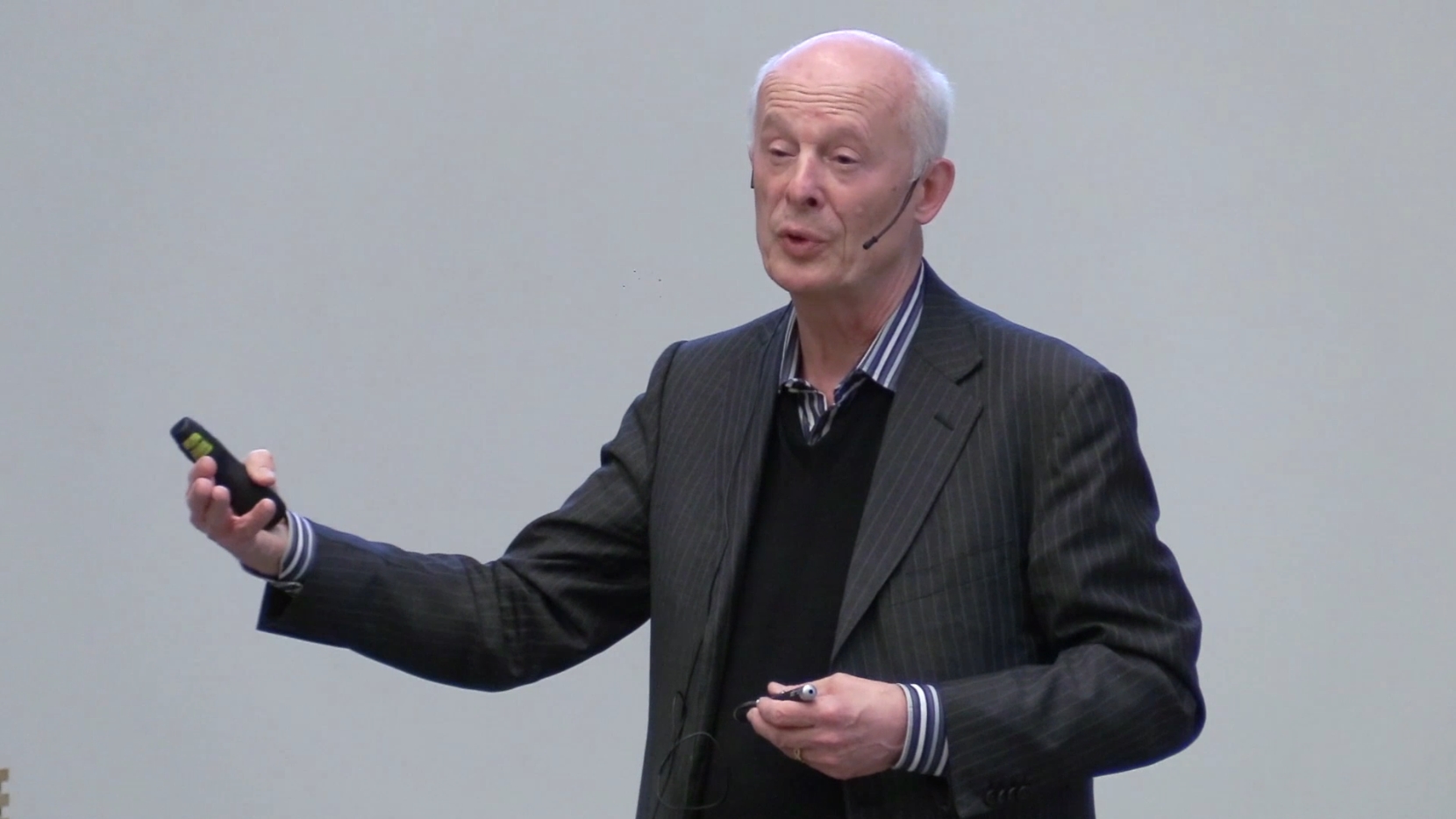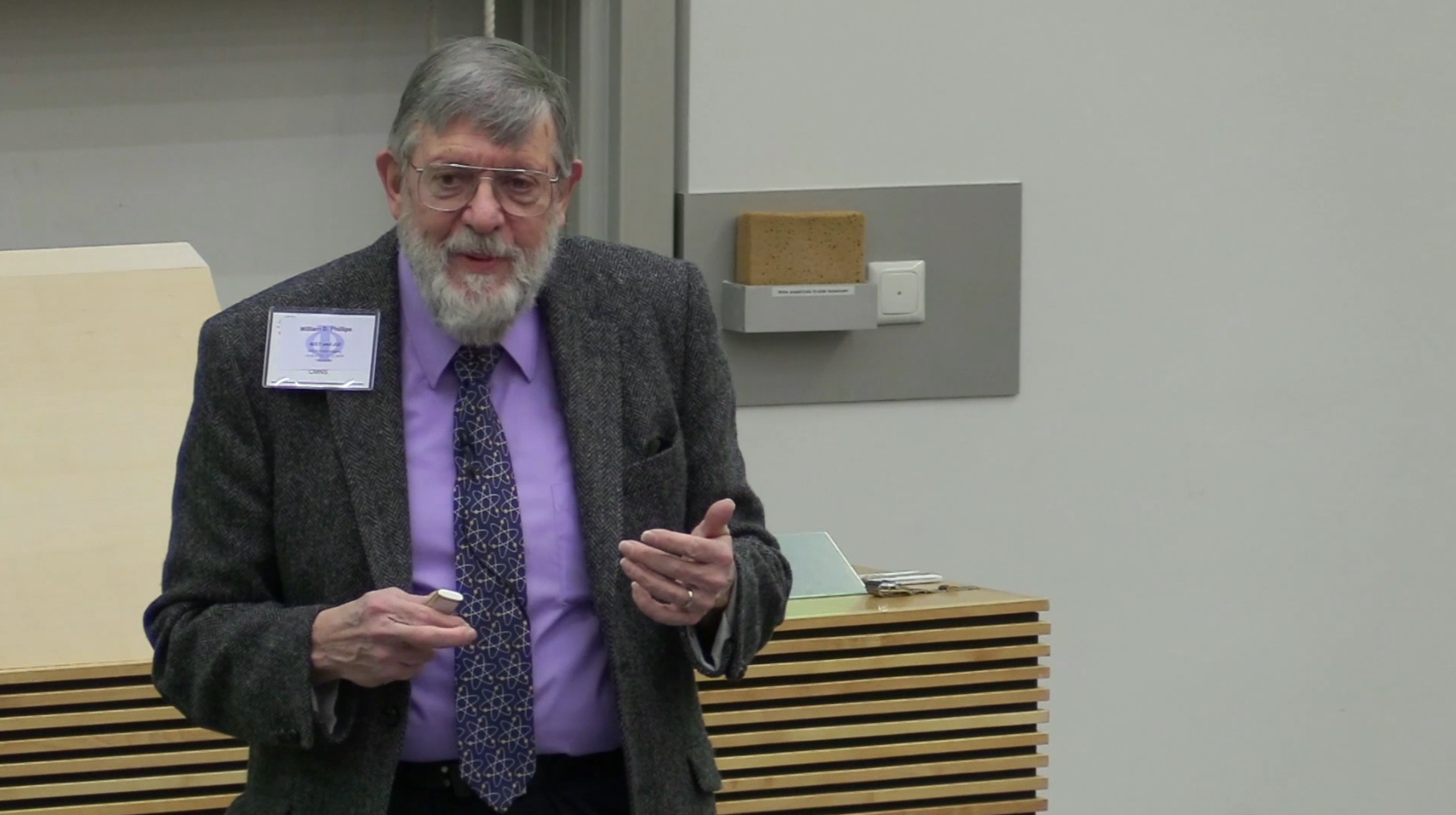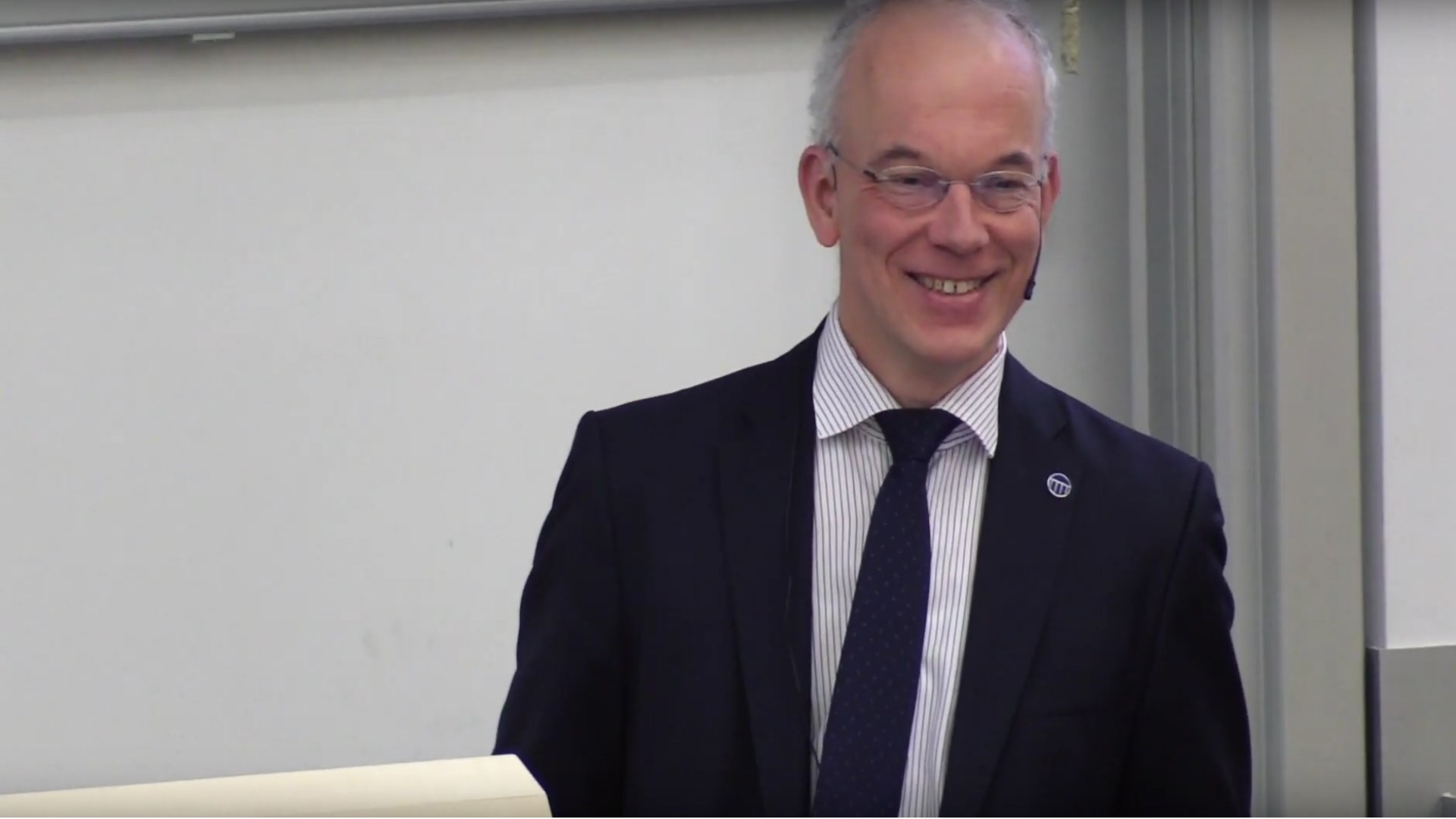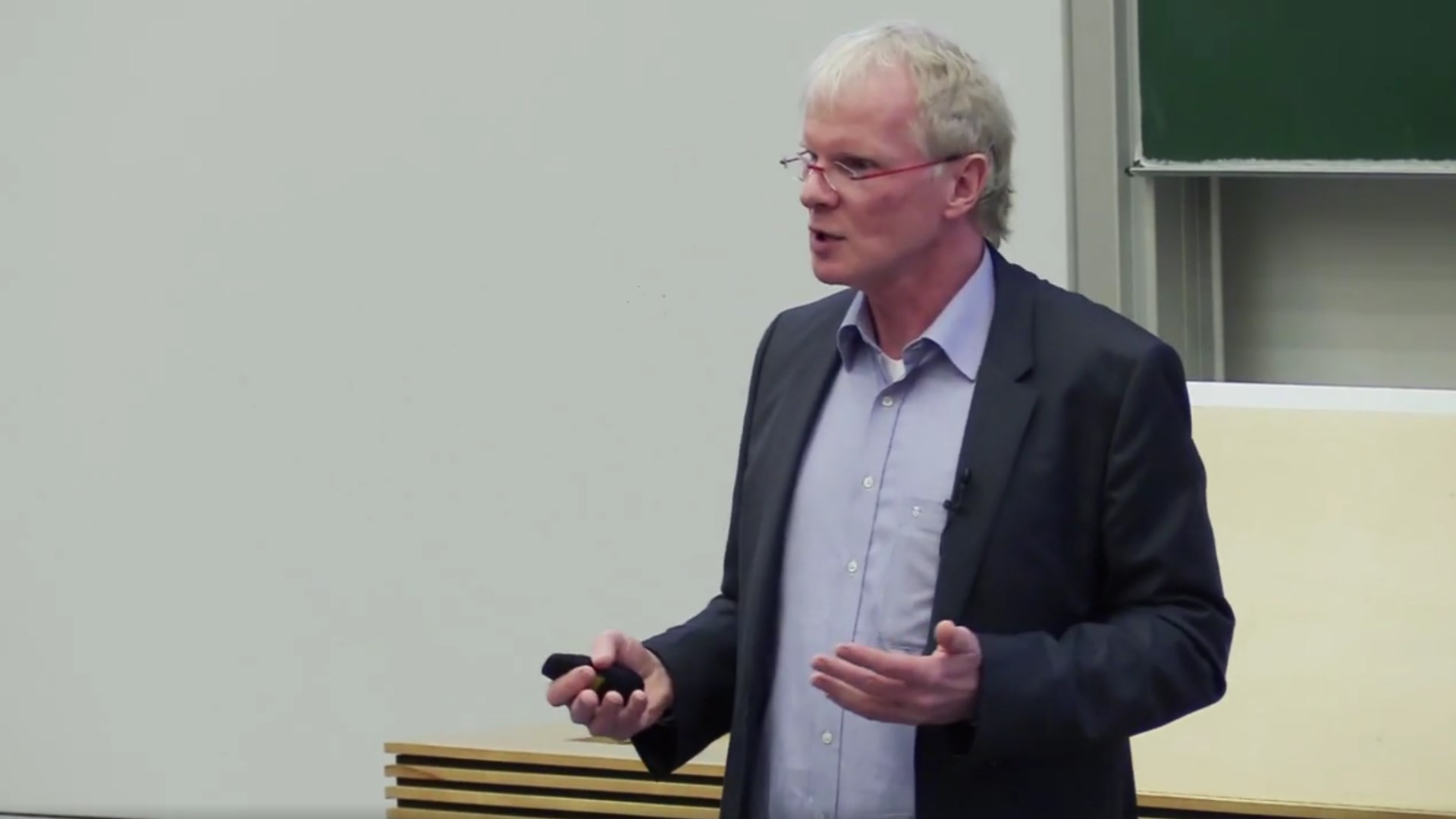DPG-Frühjahrstagung 2019 in Rostock
Alle Informationen zur DPG-Frühjahrstagung an der Universität Rostock finden Sie auf der Tagungswebseite rostock19.dpg-tagungen.de.
Max-von-Laue Lecture - 2100: A Climate-Space Odyssey
Prof. Dr. Hans Joachim Schellnhuber
Vor über 50 Mio Jahren begann sich die Erde aufgrund mächtiger geologischer Prozesse abzukühlen, um schließlich vor etwa 2,5 Mio Jahren in den Eiszeitzyklus einzutreten, der aus einem subtilen Zusammenspiel von Gravitation und Strahlung entstand. Unter diesen heftig schwankenden Umweltbedingungen entwickelte sich der Homo sapiens, aber erst in der klimatisch besonders stabilen Warmzeit, die vor etwa 11 000 Jahren einsetzte, wurde die Zivilisation geboren.
Letztere erfuhr einen gewaltigen Schub durch die Industrialisierung, die ihre Energie immer noch vorwiegend aus fossilen Brennstoffen bezieht. Als unbeabsichtigter Nebeneffekt reichert sich die Erdatmosphäre seit dem 19. Jahrhundert mit CO2 an, wodurch der natürliche Treibhauseffekt zunehmend verstärkt wird. Damit stellen sich grundlegende Fragen: Wie ändert sich der Charakter des Klimasystems durch diese anthropogene Störung? Was werden die Folgen für Natur und Kultur sein? Kann diese Entwicklung noch gebremst werden und was sind die technischen, wirtschaftlichen und gesellschaftlichen Voraussetzungen dafür?
Der Vortrag wird auf all diese Fragen eingehen. Insbesondere soll gezeigt werden, dass bei ungeminderten CO2-Emissionen unser Planet um viele Millionen Jahre in der geologischen Zeit zurückverschoben würde und dass die Klimastabilisierung nur durch eine vollständige Dekarbonisierung der Weltwirtschaft in den nächsten drei Jahrzehnten gelingen könnte. Im Jahr 2100 wird die Menschheit dann endgültig wissen, auf welchen Kurs sie das Raumschiff Erde gebracht hat.
The future of time: prospects for a redefinition of the SI second
William D. Phillips
The reform of the International System of Units (the SI) in which the kilogram, ampere, kelvin, and mole are all defined by fixing the values of four fundamental constants of nature, gives us a measurement system in which all of the base units are defined in terms of natural constants. While one might have hoped that this reformed SI would serve us into the indefinite future, the SI unit of time, the second, remains in serious need of redefinition. This talk will describe the history and current status of the SI second, and speculate about a possible redefinition.
Ultimate Rayleigh-Bénard and Taylor-Couette turbulence
Prof. Dr. Detlef Lohse
Rayleigh-Bénard flow - the flow in a box heated from below and cooled from above - and Taylor-Couette flow - the flow between two coaxial co- or counter-rotating cylinders - are the two paradigmatic systems in physics of fluids and many new concepts have been tested with them. While the low Reynolds number regime has been very well explored in the '80s and '90s of the last century, in the fully turbulent regime major research activity only developed in the last two decades. We will first briefly review this recent progress in our understanding of fully developed Rayleigh-Bénard (RB) and Taylor-Couette (TC) turbulence, from the experimental, theoretical, and numerical point of view and discuss transitions between different (turbulent) flow states. We will in particular focus on the so-called ultimate regime, in which the boundary layer has become turbulent, and which therefore has enhanced transport properties. In the last part of the talk we will discuss RB and TC turbulence with rough walls. There the results can be expressed in terms of the skin-friction factor, revealing analogy to turbulent flow in rough pipes.
Chemical Energy Storage: a Key Element for a Sustainable Energy Future
Prof. Dr. Ferdi Schüth
Our energy systems are facing fundamental changes, caused by the depletion of fossil fuels and climate change. This requires increased use of renewable energy, which are typcially intermittent, such as solar radiation and wind energy. Storage of energy could thus become a key question in future energy systems, and methods for storage and different time and size scales are necessary. Chemical storage, including electrochemical systems such as batteries, have advantages compared to purely physical methods, since only chemical methods reach the required storage densities. The presentation will address the conditions, which future storage systems will have to meet and discuss different systems and their integration into the energy system. Main develeopment lines and the research needs associated with them will also be addressed.



